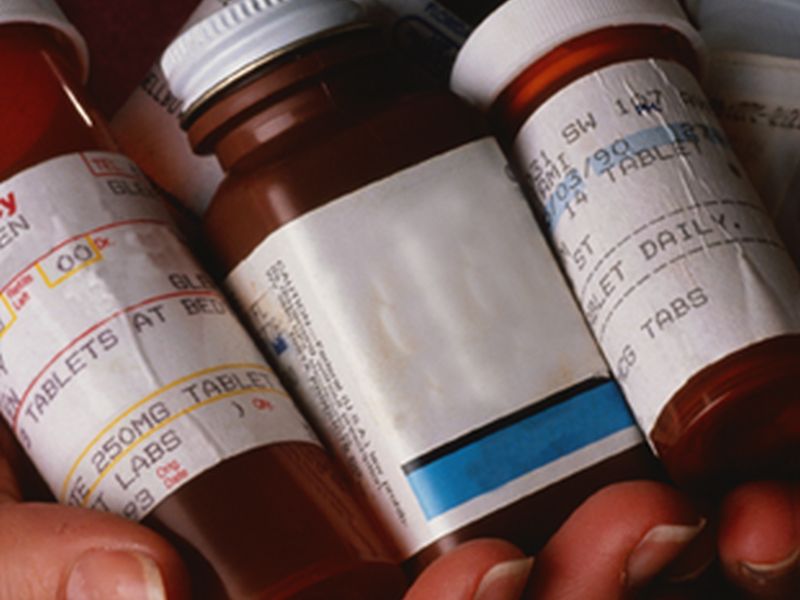Thursday, August 3, 2017

THURSDAY, Aug. 3, 2017 (HealthDay News) -- A new survey finds 55 percent of Americans regularly take a prescription medicine -- and they're taking more than ever.
Those who use a prescription drug take four, on average, and many also take over-the-counter drugs, vitamins and other dietary supplements, the survey done by Consumer Reports shows.
But many of those pills may be unnecessary and might do more harm than good, according to a special report in the September issue of Consumer Reports magazine.
Among those who take prescription drugs, 53 percent get them from more than one health care provider, which increases the risk of adverse drug effects. More than a third say no provider has reviewed their medicines to see if all are necessary.
Forty-nine percent of survey respondents who regularly take prescription medicine asked their prescribers whether they could stop taking a drug, and 71 percent were able to eliminate at least one.
"We can see that when consumers ask if they can stop taking at least one of their medications, in the majority of cases, their doctors agree," Ellen Kunes, leader of Consumer Report's Health and Food Content Development Team, said in a news release.
For more click here.
Editor's note:
Medications can be helpful tools to manage symptoms and underlying physical disorders, but the knee jerk reaction in the business model of delivering health care services is to prescribe a drug. It is quick and easy and gets the patient off the physician's back in 12 minutes or less. In other words, prescribing drugs is good business but can be questionable health care.
Patient's feed into this dynamic believing that unless the physician prescribes a drug for their complaint they haven't been taken seriously. The problem of the overprescription and utilzation of pharmaceuticals is endemic to the corporate culture of modern health care delivery. As the old Latin expression Caveat Emptor states, "Let the buyer beware."


